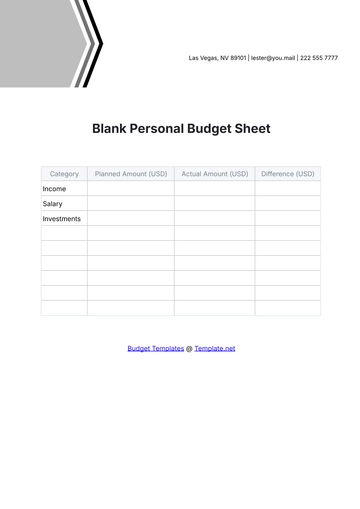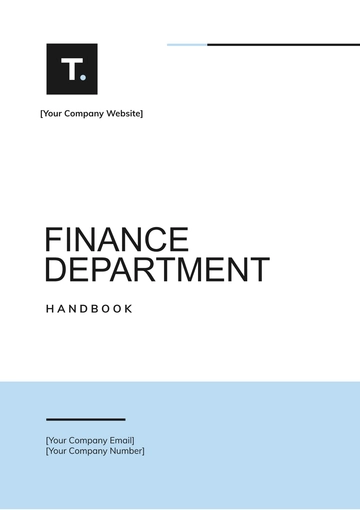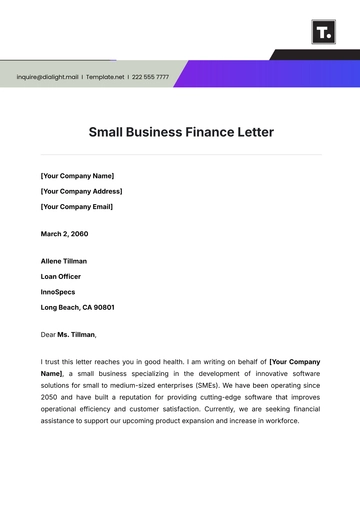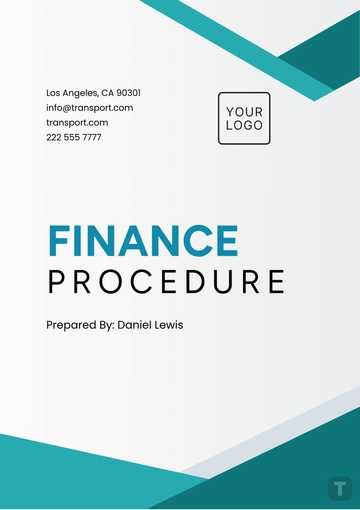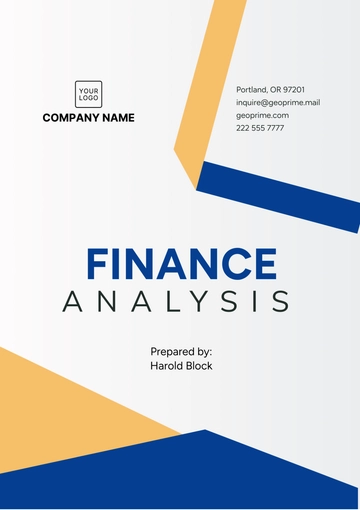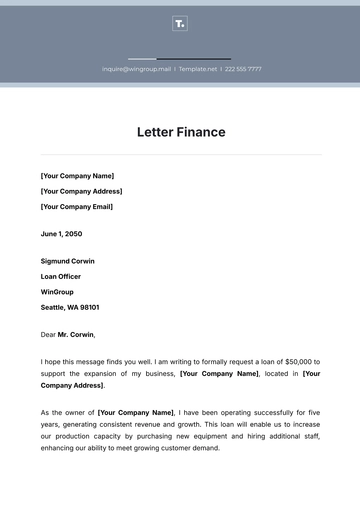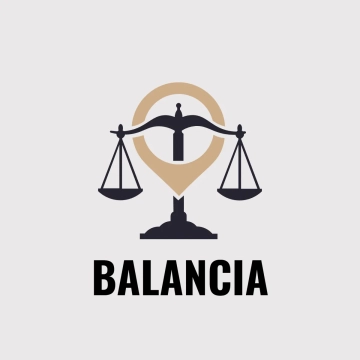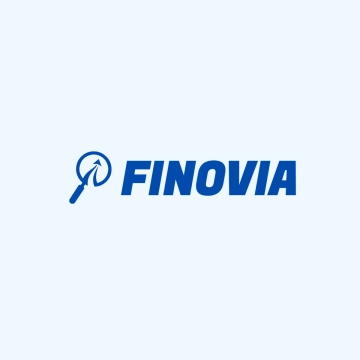Free Financial Compliance Document
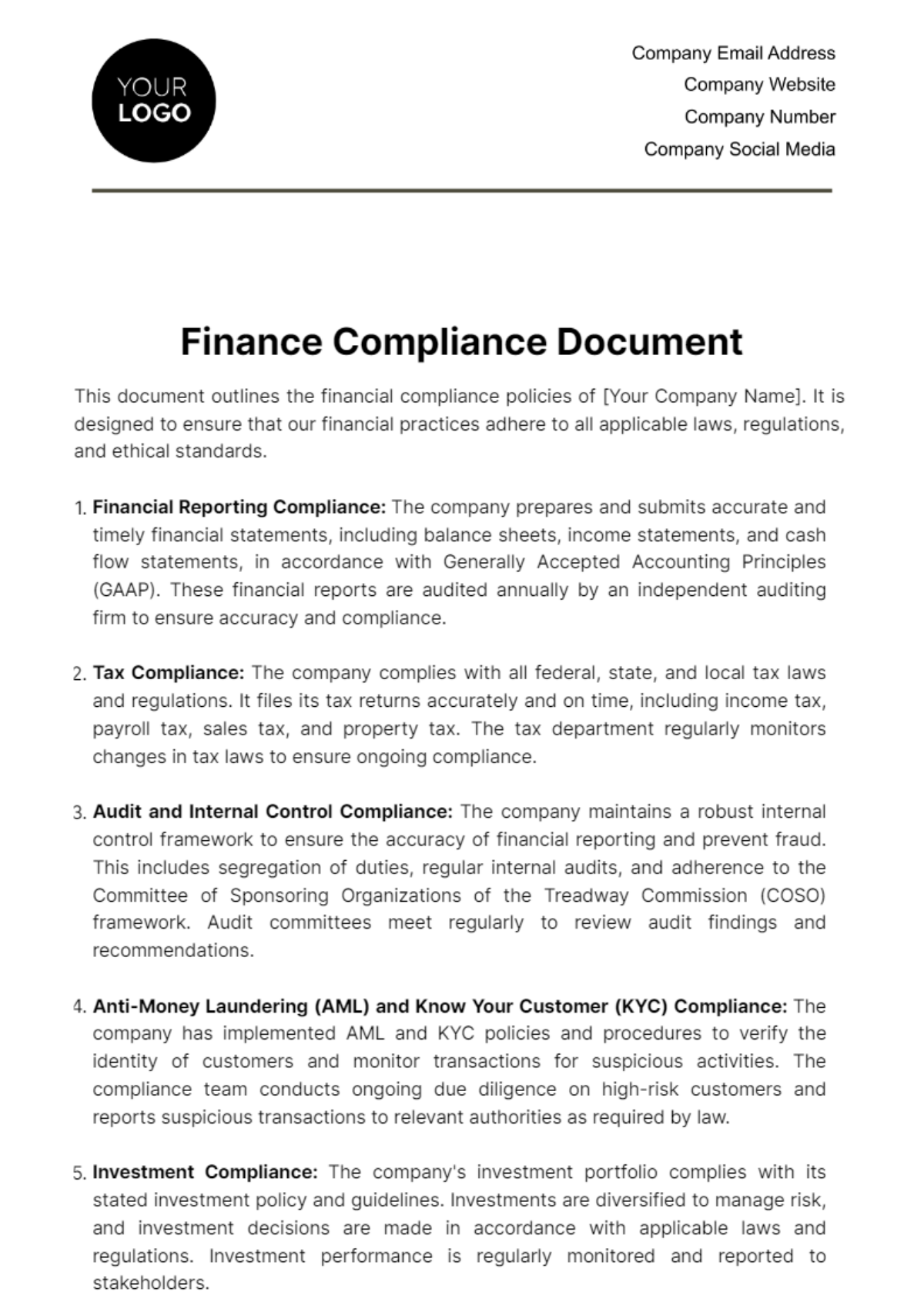
This document outlines the financial compliance policies of [Your Company Name]. It is designed to ensure that our financial practices adhere to all applicable laws, regulations, and ethical standards.
Financial Reporting Compliance: The company prepares and submits accurate and timely financial statements, including balance sheets, income statements, and cash flow statements, in accordance with Generally Accepted Accounting Principles (GAAP). These financial reports are audited annually by an independent auditing firm to ensure accuracy and compliance.
Tax Compliance: The company complies with all federal, state, and local tax laws and regulations. It files its tax returns accurately and on time, including income tax, payroll tax, sales tax, and property tax. The tax department regularly monitors changes in tax laws to ensure ongoing compliance.
Audit and Internal Control Compliance: The company maintains a robust internal control framework to ensure the accuracy of financial reporting and prevent fraud. This includes segregation of duties, regular internal audits, and adherence to the Committee of Sponsoring Organizations of the Treadway Commission (COSO) framework. Audit committees meet regularly to review audit findings and recommendations.
Anti-Money Laundering (AML) and Know Your Customer (KYC) Compliance: The company has implemented AML and KYC policies and procedures to verify the identity of customers and monitor transactions for suspicious activities. The compliance team conducts ongoing due diligence on high-risk customers and reports suspicious transactions to relevant authorities as required by law.
Investment Compliance: The company's investment portfolio complies with its stated investment policy and guidelines. Investments are diversified to manage risk, and investment decisions are made in accordance with applicable laws and regulations. Investment performance is regularly monitored and reported to stakeholders.
Debt Compliance: The company adheres to the terms and covenants of its debt agreements, including interest and principal payments, debt ratios, and other financial requirements. Regular debt compliance checks are conducted to ensure that the company is in compliance with its loan agreements.
Expense and Budget Compliance: The company manages its expenses within approved budgets and tracks variances. Budgets are prepared based on strategic goals, and any significant deviations are reviewed and explained. Expense approval processes are in place to ensure compliance with spending limits.
Regulatory Filings and Disclosures Compliance: The company submits all required regulatory filings and disclosures to relevant regulatory authorities and agencies. This includes annual reports, SEC filings (for publicly traded companies), and industry-specific reports. Compliance teams monitor regulatory changes and ensure timely submissions.
- 100% Customizable, free editor
- Access 1 Million+ Templates, photo’s & graphics
- Download or share as a template
- Click and replace photos, graphics, text, backgrounds
- Resize, crop, AI write & more
- Access advanced editor
Introducing the Financial Compliance Document Template from Template.net! Crafted with precision for your convenience, this editable and customizable template ensures effortless compliance creation. Seamlessly integrate data with our Ai Editor Tool for unparalleled efficiency. Elevate your financial processes today with this essential resource. Compliance made simple, courtesy of Template.net.
